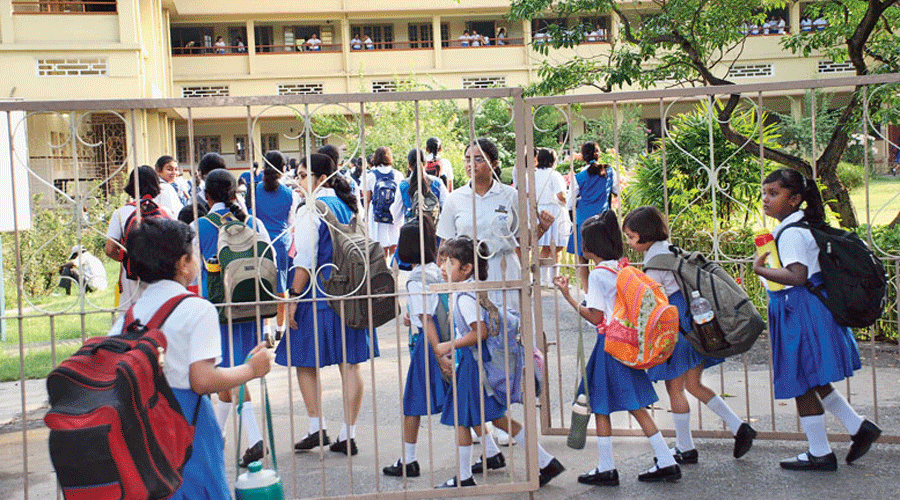The ICSE council has sent to schools a list of things they should strive do on the basis of the new National Education Policy (NEP), which proposes changes in the manner of assessment and advocates the introduction of classical languages like Sanskrit in the curriculum.
The 37-page advisory sent by the Council for the Indian School Certificate Examinations (CISCE) to the school principals mentions “actionable items” under heads such as assessment, vocational education, multilingualism and medium of instruction, redesigning curriculum and teacher empowerment.
“The CISCE as a national board would like to highlight some of the salient features of the NEP 2020 to bring about necessary awareness among our affiliated schools. This must be followed by the next logical step of initial implementation of some of these actionable features into the school system, at the earliest,” the council’s circular says.
“The CISCE has been in discussion with several experts and government officials regarding the NEP 2020 for some time now. The outcome of such discussions and brainstorming is a compilation of actionable items in the NEP 2020, which schools will need to implement at the earliest, if not already implemented.”
The council is working on the modalities of allowing candidates to take board exams on up to two occasions (one main exam and one for improvement) during a school year from exam year 2023.
The advisory says school assessment should be holistic in nature and include “self-assessment, peer-assessment, and parent assessment, in addition to teacher assessment”.
The council wants question papers designed by teachers for internal exams to “include more application-based questions (case-based and source-based) that test understanding and application of concepts”.
Multiple methods such as quizzes, role plays, group work, portfolios and project work must be employed to assess students, the circular says.
The Telegraph had reported in July that the council had said that the assessment pattern of ISC (Class XII) and ICSE (Class X) would focus on “analytical and critical thinking” to reduce “rote learning”.
Gerry Arathoon, chief executive and secretary of CISCE, had then said: “The assessment pattern for ICSE and ISC will encourage critical thinking. Children will have to come out of the practice of rote learning and teachers will have to prepare them for that.”
Seema Sapru, principal of The Heritage School, said: “Teachers will have to do more research, read more and allow children to think independently for the proper implementation of the council’s guidelines.”
The advisory “suggests” that “schools offer Sanskrit, along with other classical languages, to their students at various levels, to initiate and develop an interest among the students for these languages”.
In Kolkata, many schools do not offer Sanskrit and some of them said they would have to look for teachers if they had to implement the new language policy.
“It could be difficult to find teachers who can teach Sanskrit. So far, there have been no candidates applying to teach Sanskrit,” said Terence John, principal of Julien Day School Kalyani.
Some schools said they would need more clarity on how assessments could be done by parents and peers.
One school head said assessment need not mean awarding marks to the child by the parents but assessing the calibre of the child. “It could be a 360-degree feedback report card,” she said.
The advisory has asked for vocational education to be integrated into the school curriculum. Schools have also been asked to embrace the use of technology.
